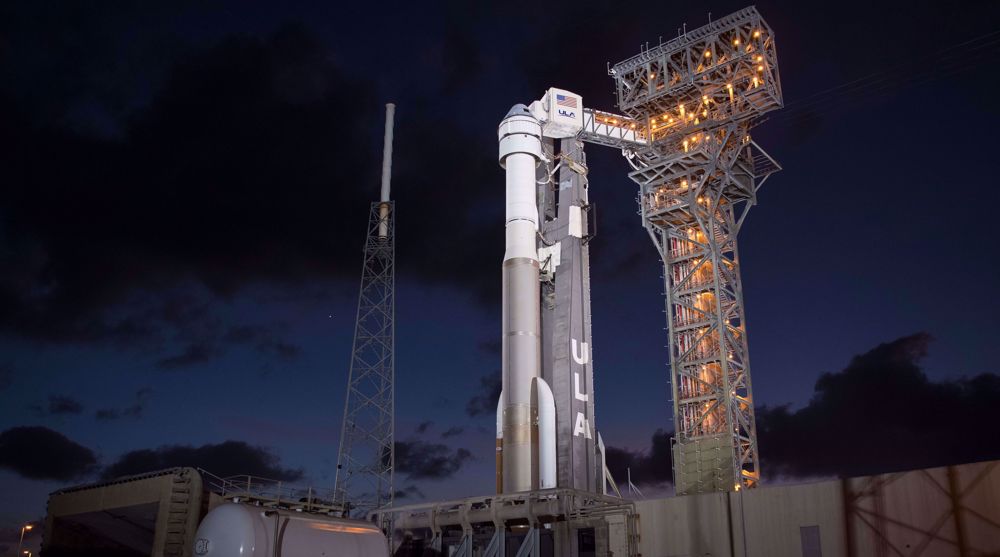US new space strategy ‘aggressive’, Washington seeing space as arena for waging war: Russia
Russia has lambasted the US’s newly-unveiled space strategy document as “aggressive”, saying Washington views space as a new “arena” to wage “war.”
“The document confirms the aggressive course by Washington in the space sphere,” said Russia's Foreign Ministry in a statement on Friday.
“Space is seen by the US side as an arena for warfare,” it said, calling this a “destructive” approach which “provokes an arms race in space,” it further read.
On Wednesday, the US Department of Defense (DoD) unveiled an updated version of its space strategy that replaces the 2011 document issued by the Obama administration, providing broad guidance to DoD for achieving desired conditions in space over the next 10 years.
The new space strategy, which is mainly based on the 2018 national defense strategy issued by the administration of American president Donald Trump, stresses that the US must strive to maintain superiority in space and calls for the US military to prepare to compete with rising military powers such as China and Russia.
“China and Russia present the greatest strategic threat due to their development, testing and deployment of counterspace capabilities,” the new document says, accusing Moscow and Beijing of allegedly developing tools for jamming and cyberattacks that directly threaten US satellites.
In December last year, Trump signed the 2020 National Defense Authorization Act into law and officially directed the establishment of the US Space Force (USSF).
The act angered both Russia and China, in particular, at the time. They said that the US actions would seriously violate the international consensus of peacefully exploiting outer space, posing direct threat to peace and security of that region.
Elsewhere in the statement on Friday, the Russian foreign ministry said that Moscow “holds the diametrically opposing position, giving priority to using and studying space only for peaceful goals.”
Last year, the landmark Intermediate-Range Nuclear Forces Treaty (INF) collapsed after Washington pulled out of the 1987 bilateral deal with Moscow. The INF had banned all land-based missiles with the range of up to 5,500 kilometres.
The withdrawal from the agreement came after Washington accused Moscow of secretly violating it. Russia, which has repeatedly rejected these allegations, stopped implementing the INF after the pullout.
Furthermore, Russian President Vladimir Putin has already warned that nothing can hold back yet another arms race and thus international security will be damaged if the Strategic Arms Reduction Treaty (START) with the US is not renewed.
The START accord is the last major nuclear arms control treaty between Moscow and Washington that puts a limit on the development and deployment of strategic nuclear warheads of both countries.
Back in July 1991, START, which later was called START I, was signed the US and Russia, barring both countries from deploying more than 6,000 nuclear warheads atop a total of 1,600 intercontinental ballistic missiles (ICBMs) and bombers.
In January 1993, the two sides signed START II, but it collapsed and never entered into force.
The START I treaty expired in late 2009 and its replacement, called the New START or START III, was signed in April 2010 Washington and Moscow, under which both sides agreed to halve the number of strategic nuclear missiles and restrict the number of deployed strategic nuclear warheads to 1,550.
The New START can be extended for another five years, beyond its expiry date in February 2021, by mutual agreement.
IRGC intelligence announces arrest of Mossad-linked operative
FM on US, Israel role in riots: Arson ultimately burns arsonists
VIDEO | Trump’s second term and global nightmare
VIDEO | Iran slams US support for riots
VIDEO | Iran's foreign minister concludes two-day visit to Lebanon
VIDEO | Press TV's news headlines
Pezeshkian: US wrong to assume its tactics elsewhere can work in Iran
VIDEO | Armed rioters torch Tehran infrastructure overnight














 This makes it easy to access the Press TV website
This makes it easy to access the Press TV website